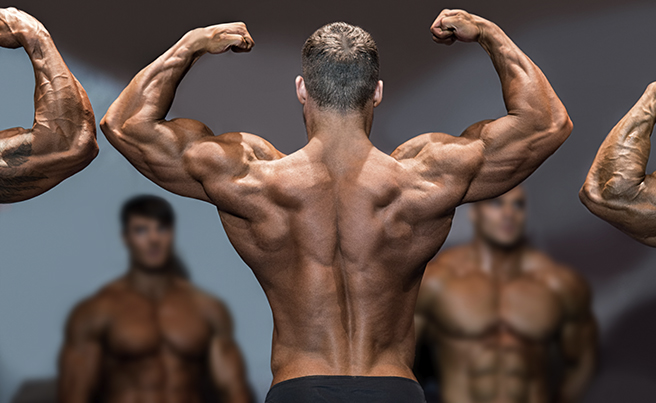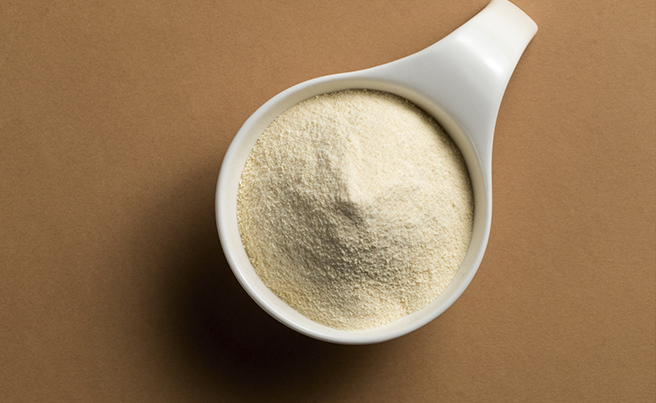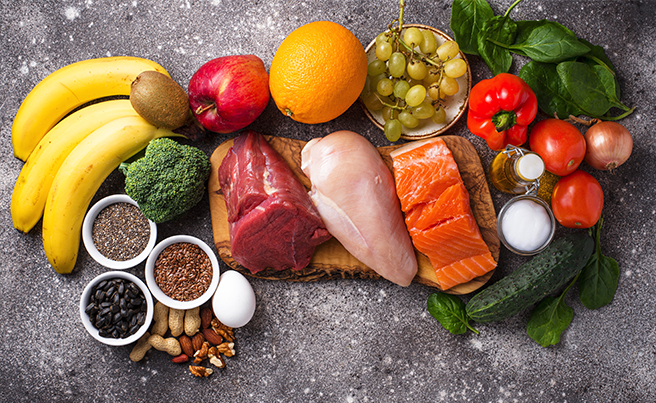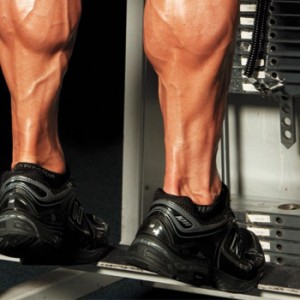Nutrition
Bodybuilders Pre-Competition Diet: Guide for Amateurs and Not Only
Useful articles

Is there a bodybuilder out there who doesn’t dream of winning a competition? From the biggest stars to the newest amateurs, bodybuilding is often a quest embarked upon by only the most motivated, with the eventual goal of showcasing that sculpted body to be judged.
Experienced bodybuilders, and those who have competed before, likely already know the ins and outs of the competition diet. This guide is for those who have never competed before, and those who want to learn just what they need to do to take that step to the next level. The diet can be strict, and it might not be what you’re used to.
Take It Seriously
Attend enough bodybuilding competitions and you’ll see, sooner or later, a phenomenon that occurs time and again. Almost every competition has someone entering who, to be frank, shouldn’t. Bodybuilding is about attaining the utmost sculpted physique, but you’ll repeatedly see people who sign up to compete when they have noticeable flab, when their muscles are hidden behind a soft, pudgy body, or when they’ve just gotten out of a fitness boot camp and think that makes them ready.
The truth is, being “fit” isn’t enough. You need to be toned, sculpted, shredded. So why do these people do it? Some of them might be addicted to shame. Some of them might have self-image issues and think they’re better off than they are. Some of them just want to break out of their shells and see what the next level looks like, and figure there’s no better place to do it than on the stage.

Whatever the reason, they can show you the difference between someone who is merely fit and someone who is built. In order to compete with these other athletes, you may have to take it a bit more seriously than you realize. It’s not necessarily a hard bar to clear, but it’s a bar you need to know exists so you can work towards it.
Gather a Crew
A large part of bodybuilding – and competing at bodybuilding – is about your workout routine and your diet. Some of it, though, is about the people you surround yourself with. This crew needs to be realistic, to temper your ambitions with realism, and to guide you when you’re getting off track.
If you’re guiding yourself, it’s a full-time job. Planning workouts, planning diets, performing research, analyzing results; it’s easy to get caught up in your own head. Finding the time to do all of the above, while still doing those workouts, and finding time to compete? It’s a ton of work. Not to mention the psychological self-image issues that many of us have. Sometimes it’s literally impossible to see yourself for how you really are, and that, in turn, makes it impossible to properly guide yourself.

A good crew should include friends and professionals who know what they’re talking about. A nutritionist who can guide you on a bodybuilding journey, a fitness trainer to help you adjust your workouts, and a friend who can look at you with a critical eye and say something that would sound insulting coming from someone else, are all critical components of a good crew. Put together this crew and you’re already well on your way to competition success.
Be Realistic
Are you going to win your first competition? No. While it does happen, and we can all point to first-time amateurs who top the leaderboards and go on to build great careers, they’re the exception to the rule. Go in expecting something reasonable. We recommend aiming for the top 5, or maybe the top 10, depending on how large the competition is. Simply try to make the cut, not to win.
Realistically, there’s more to competing than just looking good. Bodybuilding has a lot of politics involved in it, and that’s just the way it is. You might look objectively better than everyone else at a competition, but if you’re a newcomer to an established political fight, they’re all going to override you.
Sometimes a show just isn’t your show, and that’s okay. It’s important to start getting your name out there, getting some experience under your belt, and learning how it all works in the world of competition. You’ll learn, as superdrol 350 plus long as you keep at it, and eventually you’ll find your way to the top.

Dietary Details
Enough about the groundwork, right? You’re here for diet advice, not pro tips on the realism of the competition space. That’s perfectly fine! Just remember that bodybuilding is about more than just your diet; your workout plays a critical role as well. We’ll discuss that in greater detail another time.
Start with dedication. Preparing for a bodybuilding competition starts early, and we mean early. If a competition is scheduled for May 15th, you should be starting May 15th of the previous year. You want a lot of lead time to study and prepare.
Once you have a few competitions under your belt, you’ll have settled into more of a routine, where your “baseline” level is near competition-ready. If you’ve never competed before, get ready for an intense experience. It’s stressful, it’s a lot of work, and it absorbs a lot of your free time. Many people simply aren’t cut out for it, and that’s fine. Be prepared to give it the old college try, for at least a year, before you decide whether or not you can cut it.
Avoid quick diets. There are a lot of bodybuilding coaches out there who would love to sell you a 12-week program to get you shredded in time for a competition. Here’s the thing about those programs: they work, but, at a steep cost.
These programs essentially put you into a starvation diet. You’ll lose a lot of weight, almost all of it being body fat. Combined with working out, you’ll build muscle and definition very quickly.
The problem is, it’s not sustainable. These programs are often riddled with holes; they lack a program for micronutrients, they don’t account for individual variations in genetics, and they ignore the science of nutrition and vitamin absorption.
You may look competition-ready in 12 weeks, but you’ll feel miserable and your body will suffer for it. Once the competition is over, returning to a regular diet will destroy you. Your metabolism suffers long-term damage, you may develop organ issues, and you’ll find it even harder to repeat next time you want to compete.

Build a plan. With your chosen competition a year out, start working out a diet plan that can get you to your target weight class in time. How much weight do you need to lose each week to reach it? A realistic weight loss is between 0.5 and 1.5 pounds per week. Remember that you’re likely to be bulking up before the competition as well, and account for a higher starting weight to lose.
Some bodybuilders like to compete regularly and keep their bodies in peak shape year-round. This can be extremely grueling and can put a lot of strain on your body, especially if you do a lot of travel to visit various competitions. In general, we recommend picking a competition season and sticking with it. During the offseason, you will be bulking and working out to build muscle mass. When competition season approaches, you cut and work on your definition.
Your goal before starting a competition plan should be aiming for 12-14% body fat as a maintenance level. If your percentage is higher, work more to lose it. If it’s lower, bulk up a bit. Remember that there are critical nutrients and vitamins your body needs that are fat-soluble; without some level of body fat, you end up with nutritional deficiencies.
Balance your nutrients. The general calculation for protein intake should be about 1-1.5 grams of protein per pound of body weight per day. So, if your body weight is 200 lbs., you want to consume between 200 and 300 grams of protein per day. That’s around half a pound of protein per day.

Carbohydrates are also important for a balanced diet in the offseason. You want to consume enough of them to keep your body fueled, but not so much that you gain fat above your target body fat percentage. Around 1 gram per pound of body weight is a general target, adjusted for how your body uses that energy.
Calculate your calories while you’re at it. The average person needs around 2,000-3,000 calories per day to maintain their weight level, with a moderate activity level and a reasonable metabolism. Your goal is generally going to be losing weight, so aim for a 500-ish caloric deficit.
Here are a few sample diets you might try out:
- Jb_pl_42’s sample diet on Bodybuilding.com
- A three-phase competition diet from MuscleAndFitness
- Scientific Macros from VeryWellFit
You can find as many diets out there as there are competitors. Everyone has their own advice. You might notice that most of these numbers are generalized. This is where your nutritionist comes in. Your precise workout routine, your genetics, and metabolism, the range of supplements you take, the diet you eat; it all varies. It also varies depending on your starting point. You want to tailor everything about your diet and exercise routine to fit you, in a completely customized plan.

Focus on macros, eat healthy foods, make sure you’re getting enough vitamins and minerals, and don’t cheat yourself. Keep up with your workout, make sure you’re on target to reach your competition goals, and adjust anything and everything as needed to stay on track. Remember, there’s no one Perfect Diet for everyone.
The Competition Prep Diet
Once you’re about 20 weeks out from your competition date, it’s time to adjust your diet and exercise to start working towards your competition body. You have a target weight, you have your current weight, and you know how much you need to eat to hit that weight. Generally, this means cutting. In the offseason, you’re bulking up to build those muscles into peak shape. In the competition season, you cut the extraneous fat and get down to your goal weight.
A lot of your 20 weeks out will focus on your exercises and your poses. Bodybuilding is about more than just looking good passively; you need to learn how to pose and how to look good doing it. This is where a member of your crew who has experience in the competition circuit can be a great asset. They can help you with your pose practice and set you on the right track. If you need to pay for a monthly consultation instead of keeping someone on hand all the time, do so.
One thing you’ll often see in the lead-up to a bodybuilding competition is dehydration. You see this a lot in Hollywood; actors who look absolutely ripped on film often reach a dangerous level of dehydration to look that way prior to filming. A famous example is Hugh Jackman in Wolverine; he would dehydrate himself for 36 hours to shed water weight prior to filming.
Be very, VERY careful if you try to do this. You can shed a lot of weight before a competition, but dehydration is also very bad for your body. If you keep it up too long, it can even be deadly. The last thing you need is to pass out on stage!

You can achieve perfectly viable results through dieting, cutting fat to remain lean, and focusing hard on the weeks leading up to the competition.
Finally, there’s always the elephant in the room: steroids. Do some competitors abuse steroids or other forms of growth hormone or performance-enhancing compound? Sure. Should you? Absolutely not. In addition to the risk of disqualification, you’re cheating yourself. More importantly, most of these methods can lead to long-term damage to your body, especially your endocrine system and your heart. What does it matter how many competitions you win if you die when you’re 40?
The road to a successful competition is a long and hard one, but it’s rewarding as well. Work at it, achieve your own results, and win on your own merits.
Thank! Your message has been sent successfully.










Questions and answers 0